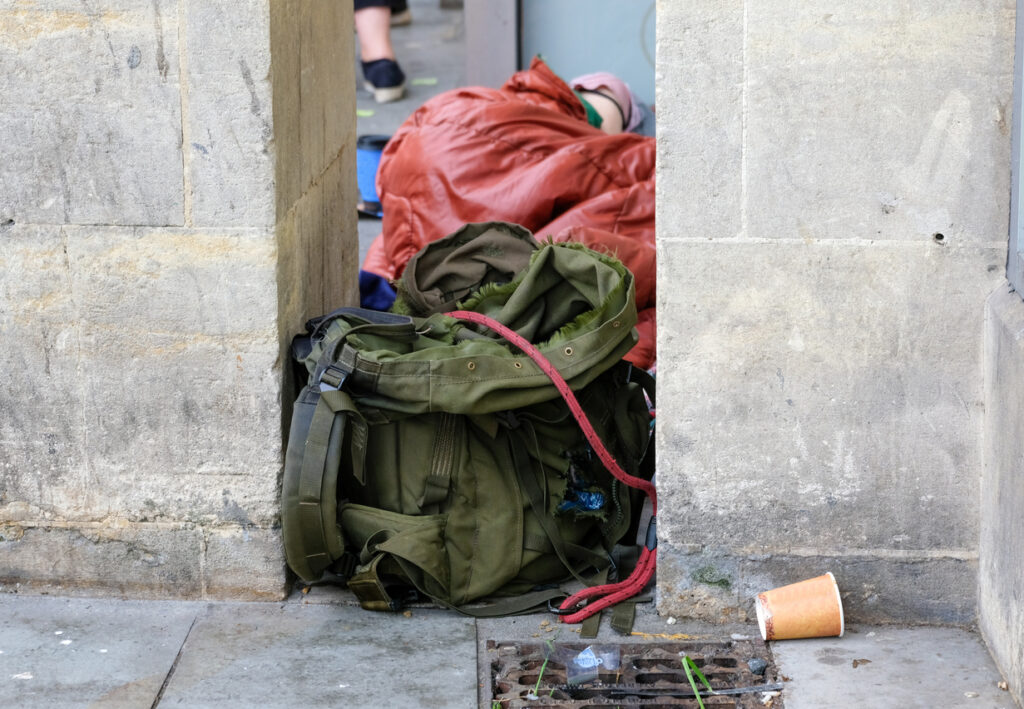Nobody should have to experience the trauma of homelessness, yet fourteen years of austerity and economic mismanagement from the conservative government have left us in a crisis, with the number of people finding themselves either on the street or stuck in sub-standard accommodation, spiralling out of control.
At the end of June last year our country had a record high number of households living in temporary accommodation, a total of 105,750 households, including over 140,000 children. The annual data released in October showed local authorities in England spent £1.74bn in a year on temporary accommodation, more than double the spend just seven years ago.
This January a group of more than 50 councils came to Westminster to warn the government they fear bankruptcy if they are not given emergency funding. For some of these 50 councils their spending on emergency accommodation is now taking up more than a third of their entire budget. In some cases, almost half.
And whilst the Tories promised to end rough sleeping by 2024, the number of people stuck sleeping rough is instead increasing nationally. The figures released at the end of last month showed us that 2023 saw a 27% rise in rough sleeping, which makes it the second year in a row that the number of people sleeping rough has risen by over a quarter.


If Labour are elected to Government this year it is clear the task is a hard one, but Labour has a proud record of addressing homelessness and rough sleeping. The number of families in temporary housing was halved between 2005 and 2010. And in 1999, Labour launched the Rough Sleepers Unit, achieving its goal of reducing rough sleeping by two-thirds by 2001, ahead of its 2002 target. By 2010, street homelessness reached a record low.
Economic hardship should not be an obstacle in combating homelessness. Even amid the 2008 global financial crisis, Labour managed to reduce homelessness by nearly a fifth. This demonstrates that effective policies can overcome tough conditions. Tackling homelessness is an even harder task this time around. If we are going to successfully tackle the homelessness crisis this time, we need to look at investing in solutions we know work.
New Labour were successful because tackling homelessness was given priority by 10 Downing Street. This is essential if Government is to abandon working in their traditional departmental silos. New funds were established like Supporting People which enabled councils to provide comprehensive support rather than allowing individuals to fall through the gaps.
Homelessness prevention services like the Sefton Families Service can teach us a lot, it’s a brilliant programme based just 7.5 miles from my constituency office. The Sefton Families Service is a homelessness prevention service run by Riverside, which to date has a 100% success rate and has saved Sefton Council approximately £1.6m in temporary accommodation costs over four years.
There are 20 properties with either two or three beds in each – the families living in these properties receive intensive help from the Specialist Support Worker for 12 months and a furniture grant to ensure it really feels like their own space to call home. Families then transition to a general needs social housing tenancy in the same property, so they can be independent and self-sufficient after 12 months.
Many of the families who present to the Sefton Families Service are dealing with trauma and trying to overcome the impact of difficult personal situations such as domestic violence, physical and emotional abuse, relationship breakdowns and other incidents which can cause mental health problems.
One of the mothers using the Sefton Families Service first become homeless in 2020 when her relationship with the father of her children broke down. At the time, she was pregnant with her second child. Suffering with depression and anxiety after being placed in a one-room bedsit her trauma was compounded.
Living in this type of accommodation is not suitable and often worsens the outcomes of those placed in it. Yet, in the 2022/23 financial year councils in England spent almost half a billion pounds on this kind of B&B accommodation.
Temporary accommodation should be just that – temporary. Not to mention, fit for purpose, safe and healthy. Unlike temporary accommodation, Sefton Families uses learning from Housing First to help families create a permanent home in a community where they can put down roots and end the cycle homelessness.
If preventative services like this were expanded and rolled out across England and Wales, we could help more households to create a settled family home and save the taxpayers money at the same time.
Unlike the current Government, the Labour Government will not have the privilege of ignoring the elephant-sized issue of temporary accommodation. Ignoring the problem is bad economics and most importantly, the human consequences are grave.
Politics.co.uk is the UK’s leading digital-only political website, providing comprehensive coverage of UK politics. Subscribe to our daily newsletter here.












